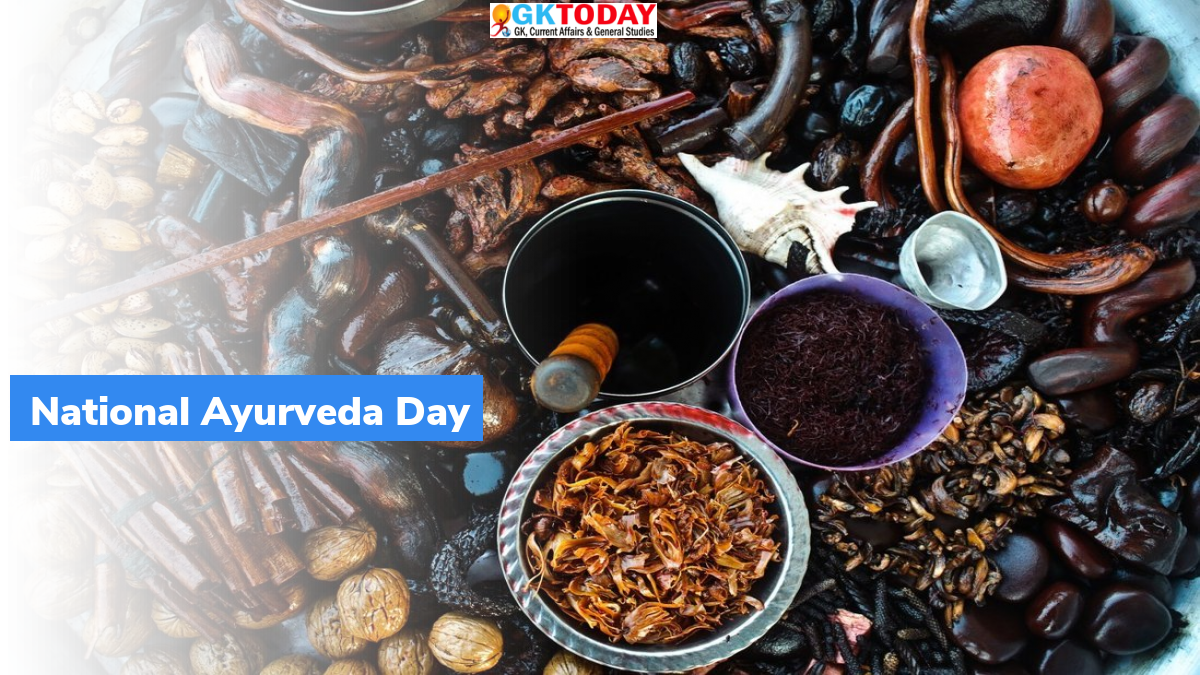National Ayurveda Day
Every year the National Ayurveda Day is celebrated on Dhanwantari Jayanti. The first National Ayurveda Day was celebrated in 2016.
Why is National Ayurveda Day celebrated on Dhanwantari Jayanti?
Lord Dhanwantari is a Hindu god. He is believed to grant good health. Also, he is the divine propagator of Ayurveda. Thus, Dhanwantari Jayanti has been chosen to celebrate the National Ayurveda Day. Lord Dhanwantari is an avatar of Lord Vishnu. He is believed to have ruled Varanasi. He rose from the ocean of milk and brought the nectar of immortality (amrit).
Significance of National Ayurveda Day
- Ayurveda is one of the well documented medicines. The promotion of health and prevention of diseases is the main aim of Ayurvedic medicines. Ayurveda has remedies from nature. It heals by establishing a symbiotic relationship with the nature. Therefore, it is essential to spread awareness on using Ayurvedic medicines.
- Around 80% of the population in Nepal uses Ayurvedic medicines. It is also widely practiced in Sri Lanka. However, some in the western countries believe that Ayurvedic medicines are pseudoscientific. Pseudoscientific means the practices are factual. In United State, Ayurveda is not licensed in any state. By celebrating National Ayurveda Day, India tries to break the myths and wrong assumptions about Ayurveda.
Objectives of National Ayurveda Day
The National Ayurveda Day promotes Ayurveda into mainstream. It focuses on the strengths of Ayurveda and its treatment. It aims to reduce the burden of the diseases on India using Ayurveda. It explores the potential of Ayurveda and contributes towards National Health Programmes and National Health Policy.
National Ayurveda Day 2021
In 2021, the National Ayurveda Day was celebrated under the following theme:
Theme: Ayurveda for Poshan
This was the sixth National Ayurveda Day celebrated in India. As a part of 2021 celebrations, the Ministry of Ayush released videos and short film. The videos were created by the National Institute of Ayurveda and the film was produced by the Central Council of Research in Ayurvedic Sciences. Also, the Ayurveda Swasthya Samiksha Booklet was launched.
Ayurveda in India
Around 80% of the Indians use Ayurvedic medicines. However, most of them use it along with western medicines. India standardised the qualifications for Ayurveda practitioners in 1970. This was done through the Medical Central Council Act. In 2014, India formed the Ministry of AYUSH.


